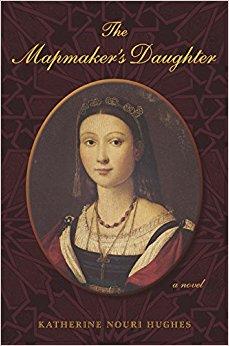Confessions of the Ottoman Empire’s Most Powerful Woman

The Mapmaker’s Daughter (Delphinium) is Nurbanu’s recounting of her own life from her deathbed. Hughes takes readers through her birth, (as Cecilia Baffo Veniero, an illegitimate Venetian) to her astronomic rise, which, thanks to her bond with the greatest sultan of her time, Suleiman the Magnificent, shaped her as the wife of his successor. Nurbanu’s motives to manipulate her children, her relationships with the other women in the harem, and the fate of the most sophisticated observatory in the world are all explored using historical facts, and, where no facts were to be found, Hughes’ imagination.
The author: Katherine Nouri Hughes *84 received a master’s degree in near Eastern studies from Princeton. She serves on the department’s advisory council and has spent much of her career as a speechwriter.
Opening lines: “I have always been propelled by deaths. No matter how they’ve grieved and ground me down. Eleven of them were worst of all, and among those were the boys’. Those deaths are the heart of everything. The Empire’s order, now and to come. The Sultan’s power and prospect. Who I am, and who I thought I was. It’s time I weigh their cost and worth. That they had — or have, or might have — worth is the crux and the story. I will tell it as far as I can see. For this is about seeing, not remembering. Let me see, then. Let me see.”
Reviews: The New Yorker says the book is “[An] absorbing historical novel… compellingly interlaces public history and intimate conjecture.” Booklist praises Hughes for writing “A heartbreaking read that marries a strong story arc with a dedication to historical details.”












No responses yet